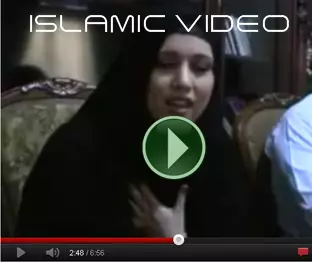Global spending by Muslim tourists is expected to reach $192 billion a year by 2020, claimed a new study cited by AFP on Monday, with the growing affluence of Muslims in the Middle East set to spark a boom in Muslim travel over the next decade.
According to Singapore-based halal travel specialist Crescentrating and US-based firm DinarStandard, who tracks the Muslim lifestyle market, Muslims in the Middle East are now travelling like never before, with other Muslim-majority states such as Egypt, Malaysia and Indonesia seen as popular destinations.
And while tourists from the Gulf region – Bahrain, Kuwait, Oman, Qatar, Saudi Arabia and the UAE – accounted for just three percent of the total global Muslim population, they spent close to 37 percent of all Muslim tourist spending in 2011.
As such, many non-Islamic countries are now “taking a serious look” at catering to Muslim holidaymakers.
The Australian tourism industry for instance has begun installing prayer rooms at airports and hotels, while promoting halal restaurants and spas adapted to religious requirements on their websites.
“Why not try Gold Coast for a cooler Ramadan this year?” says the tourism website of Australia’s Queensland state.
“With a long history of welcoming Middle Eastern visitors and a large resident community, facilities for Muslims in Gold Coast, Australia keep getting better every year,” the site wrote.
Thailand’s tourism authority, which has an office in Dubai, is also promoting halal spas for Muslim tourists; and recently organised a month-long festival of Thai cuisine in the United Arab Emirates from June 8 to July 7.
But Muslim-majority countries, such as Malaysia, still remain favourite destinations for tourists.
According to Mohammed Ali Alali, 23, a petroleum engineering student from Saudi Arabia, the ease of finding religiously appropriate food and being able to attend religious services was key factors in his decision to go to Malaysia for his honeymoon.
“It’s not that far from Saudi Arabia and it’s less expensive to travel here rather than Europe. It’s also an Islamic country so that helps in many ways, like to find a mosque and Arabic food,” he said.
The Economist Intelligence Unit added in a March report that meeting the needs of the world’s 1.8 billion Muslims was fuelling business opportunities in numerous sectors.
Thailand’s tourism authority, which has an office in Dubai, is also promoting halal spas for Muslim tourists; and recently organised a month-long festival of Thai cuisine in the United Arab Emirates from June 8 to July 7.
But Muslim-majority countries, such as Malaysia, still remain favourite destinations for tourists.
According to Mohammed Ali Alali, 23, a petroleum engineering student from Saudi Arabia, the ease of finding religiously appropriate food and being able to attend religious services was key factors in his decision to go to Malaysia for his honeymoon.
“It’s not that far from Saudi Arabia and it’s less expensive to travel here rather than Europe. It’s also an Islamic country so that helps in many ways, like to find a mosque and Arabic food,” he said.
The Economist Intelligence Unit added in a March report that meeting the needs of the world’s 1.8 billion Muslims was fuelling business opportunities in numerous sectors.
SOURCE: ECONOMY WATCH















i like what you’ve done
Comment by Knowledgable Kid — August 7, 2012 @ 12:18 pm